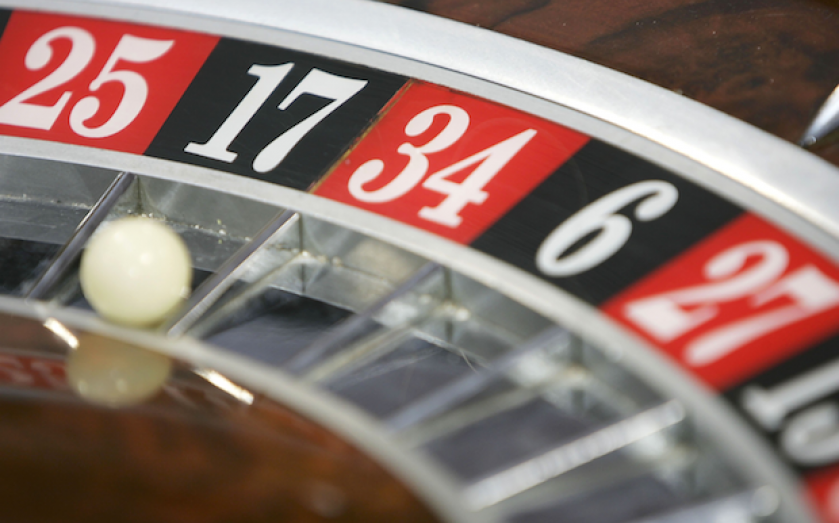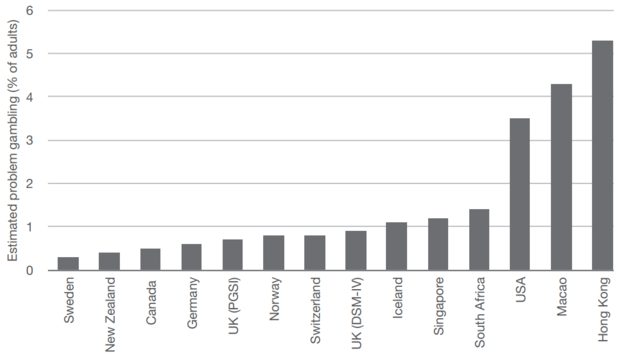The government’s crackdown on betting shops: A solution to a non-problem

The government has unveiled tighter rules governing fixed odds betting terminals (FOBTs) and has given councils greater powers to prevent the spread of betting shops.
Bookies hoping to set up a new shop can now be stopped from doing so by councils refusing to accept planning applications.
Under the old system, book makers were able to open shop in a vacant building without being subject to onerous planning applications. The impetus behind the new measures has been the clustering of betting shops on Britain's high streets.
Communities Minister, Stephen Williams, said:
The Coalition Government is determined to build a stronger economy and a fairer society with healthy and diverse high streets that aren’t dominated by betting shops.
This approach is radically different to the solution proposed by MPs on the Commons Culture, Media and Sport select committee just last year.
In 2012, the committee concluded that the 2005 gambling act had created the perverse incentive of encouraging clustering of betting shops by removing the demand test and limiting the number of FOBTs to four per shop.
"We therefore recommend that local authorities be given the power to allow betting shops to have more than the current limit of four B2 machines per premises if they believe that it will help to deal with the issue of clustering," said the report.
However, the government's reforms do not stop at allowing councils greater flexibility when it comes to planning permissions. Betting firms will now be required show how they are complying with social responsibility codes when applying for a license. Gamblers who want to bet £50 on one play of a FOBT, will now have to pay over the counter and interact with staff before playing.
At the start of the game, FOBTs will present users with a set of options to limit how much they want to spend and how long they would like to play. The machines will also display regular warning messages to encourage players to be "more aware of their gambling."
While not disastrous, the gaming industry could do without a series of extra burdens after being hit in the March budget by a rise in Machine Games Duty of five per cent to 25 per cent.
The betting industry has been subject to a host of attacks from politicians and campaigners, with Labour leader Ed Miliband saying FOBTs acted as "magnet for crime and antisocial behaviour." Some have gone so far as to label FOBTs the "crack-cocaine of gambling."
However, the evidence supporting claims that Britain is swamped by bookies or that FOBTs are wreaking havoc in vulnerable communities is remarkably thin.
In 2013, a report by Institute of Economic Affairs (IEA) investigated a series of most common complaints made against FOBTs. The report points out that Britons are not losing £46bn a year through FOBTs but a significantly more modest £1.5bn, equivalent to over the counter betting. This is because punters are winning £44.5bn or 97 per cent of what they put in.
The number of betting shops in the UK, contrary to popular belief, has not risen dramatically in recent years. From 2000 to 2012, the number of bookies rose by just 4.5 per cent, after falling to an all-time-low at the turn of the century. Furthermore, there is no clear evidence that there has been a marked rise in the prevalence of problem gambling since 1999.
The 2010 edition of the of British Gambling Prevalence Survey (BGPS) found that the proportions increased from 0.5 per cent of the adult population in 2007 to 0.7 per cent in 2010, which is not statistically significant. Britain also has a relatively low prevalence of problem gambling compared to other countries.
Author of the report, Christopher Snowdon, concluded:
These moral panics have all followed a remarkably similar template of overblown rhetoric, anecdotal evidence and fears about problem gambling which subsided after a few years when it became clear that the new activity was neither especially pernicious nor particularly contagious.
